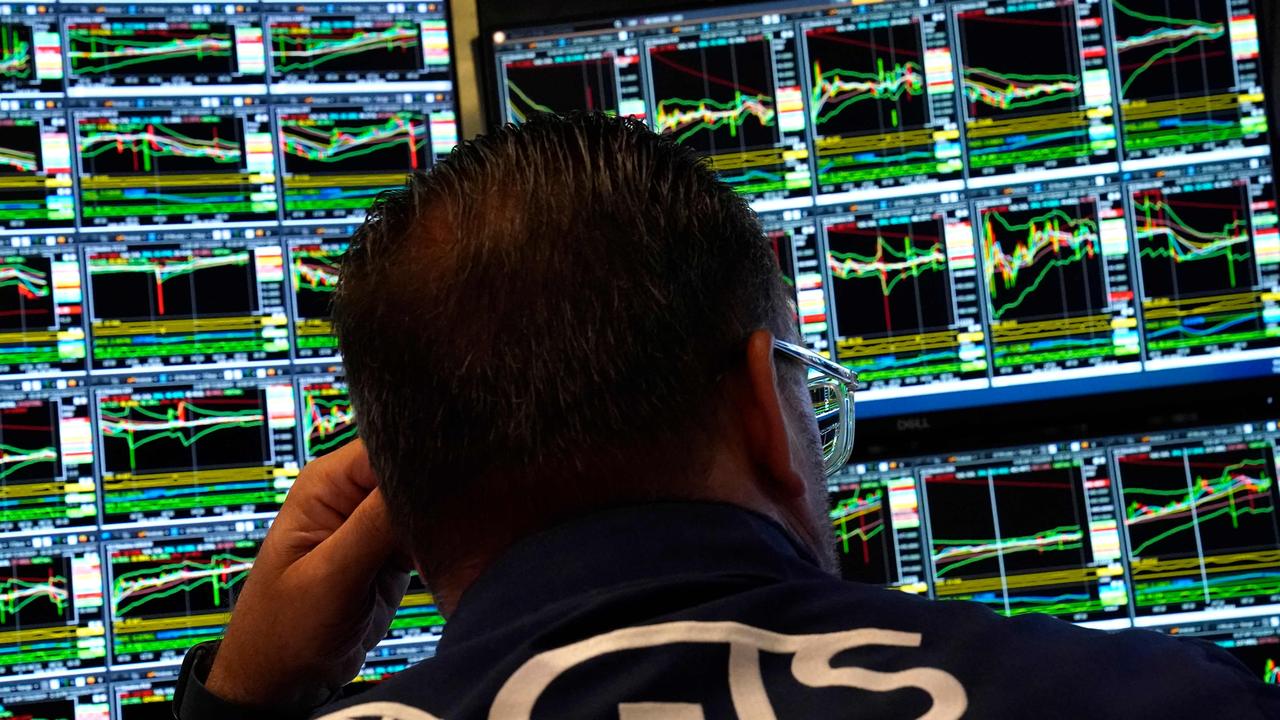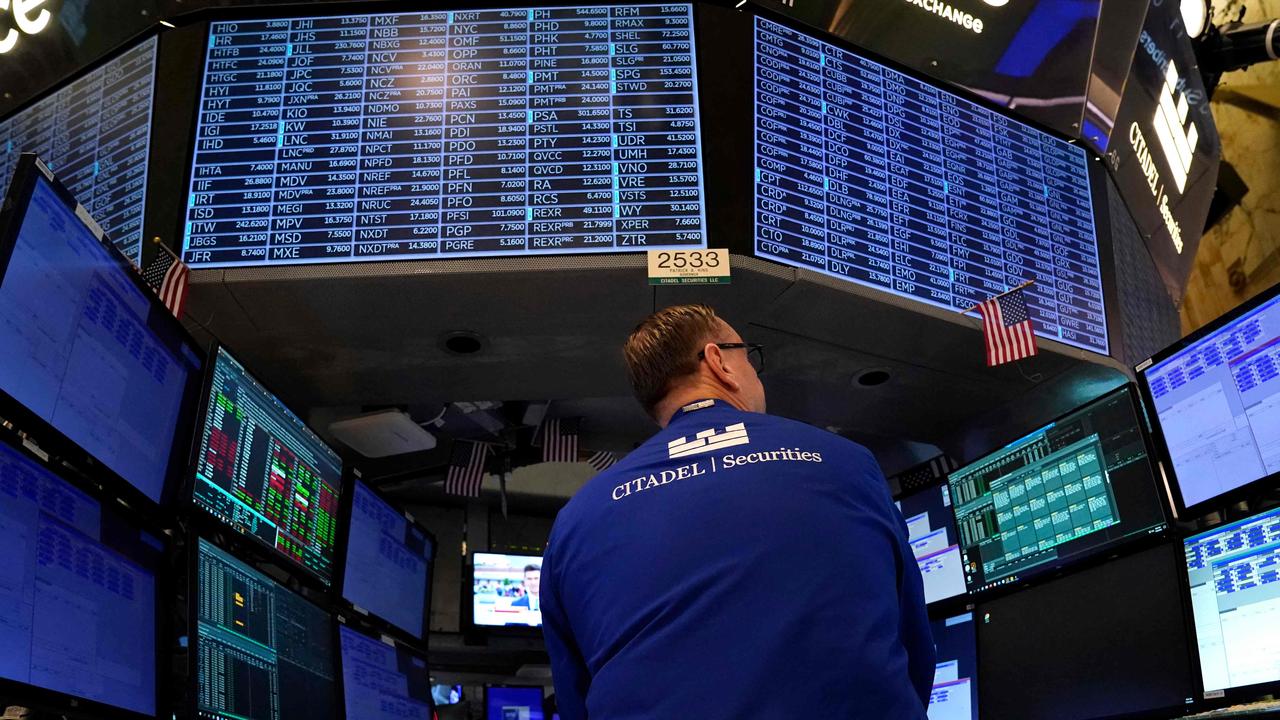Global bloodbath as recession fears emerge
There has been an enormous sell off of stocks in markets around the globe amid fears the world heading towards a major recession.
There has been an enormous sell off of stocks in markets around the globe amid fears the US is heading towards a recession in the next eight to 12 months.
The Aussie stock market sank by a whopping $59 billion — or 2.11 per cent — in a single day of trading today — marking its worst day since March 2023.
The nation’s major banks were smashed on the market with National Bank hit the hardest, down 4.1 per cent at $36.50. Commonwealth Bank slipped 2.8 per cent to $132.46, Westpac shed 2.5 per cent at $28.98 and ANZ was down 1.8 per cent at $28.71.
Another big loser was Domino’s Pizza which lost a $300m slice of value, as 9 per cent of its value melted off, for a closing price of $29.56.
There had been optimism for the Aussie economy this week because of new, not-as-bad-as predicted inflation data was released.
The consumer price index (CPI) rose by 1 per cent in the second quarter of 2024, bringing annual headline inflation to 3.8 per cent, above the March quarter figure of 3.6 per cent.
It means chance of an interest rate hike next week is less likely.
The ABS data puts inflation above the RBA target range of between 2 and 3 per cent, which it hopes to achieve by the end of 2025.
The RBA will consider the data when its board meets on Monday and Tuesday to discuss if the official cash rate should go up, down or stay on hold.

The data was welcomed by Treasurer Jim Chalmers as showing that inflation was moderating, with headline inflation “precisely what the Reserve Bank forecast”.
The stock market welcomed the news on Wednesday, but today it is clear the sentiment has changed.
The major sell-off in Australia today comes after a bloodbath on Wall Street on Thursday sparked by growing concerns that the global economy is slowing at a faster pace than previously thought.
“There was nowhere to hide overnight as dour economic data fuelled hard landing fears, sending US equity indices and bond yields lower, with chip stocks again a punching bag,” IG market analyst Tony Sycamore said.
Huge sell off on Wall St
US stocks tumbled after weak manufacturing data sparked worries about a US recession while European stocks slumped on disappointing bank earnings.
US equities had risen at the open of trading after Federal Reserve Chair Jerome Powell on Wednesday opened the door to a September interest rate cut during a press conference.
But stocks began moving lower after the Institute for Supply Management’s manufacturing index came in at 46.8 per cent in July, down from the prior month and weaker than analyst estimates.
“The market might be beginning to fear that the economy is slowing to the point where we might be looking at a recession eight to 12 months from now,” said Peter Cardillo of Spartan Capital, who also noted that jobless claims topped estimates.
All three major indices finished decisively lower, with the tech-rich Nasdaq Composite Index falling the most at 2.3 per cent.

Markets will get another key US economic data point on Friday with monthly jobs data.
Trouble brewing in Europe too
Meanwhile, the Bank of England cut its main interest rate for the first time since the Covid pandemic broke out in 2020, reducing borrowing costs by a quarter-point to 5.0 per cent.
The decision hurt the pound but was not enough to save London stocks, which fell victim to a downward shift across Europe, where hotter-than-expected eurozone inflation released on Wednesday raised uncertainty whether the European Central Bank would cut interest rates in September after doing so in June.
Both Frankfurt and Paris stocks finished more than two per cent lower. Asset manager Adrien Roure at Indosuez noted high volatility in European trading and said investors were being influenced “by company results today, particularly in the banking sector.” Shares in French bank Societe Generale slumped 8.9 per cent as it cut its earnings guidance.
British bank HSBC saw its shares fall 6.9 per cent, Lloyds 5.3 per cent and Barclays 4.6 per cent.
In Italy, UniCredit fell 5.7 per cent and Intesa Sanpaolo shed 3.9 per cent. Spanish banks Banco de Sabadell fell 5.6 per cent, BBVA 5.0 per cent and Santander 4.2 per cent.
Elsewhere, oil prices retreated after rallying the prior day as analysts viewed the rising tensions in the Middle East as unlikely to affect crude market movements.




